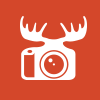Home
Tips & Tricks
Sony Tips
Sony a6400
Sony a6300
Sony a6000
Canon Tips
Canon M50 Mark II
Canon M50
Canon 6D Mark II
Canon 6D
Canon 7D Mark II
Canon 7D
Canon 90D
Canon 80D
Canon 77D
Canon 70D
Canon 60D
Canon T7 · 2000D
Canon T7i · 800D
Canon T6s · 760D
Canon T6i · 750D
Canon T6 · 1300D
Canon T5i · 700D
Canon T5 · 1200D
Canon T4i · 650D
Canon T3i · 600D
Canon T3 · 1100D
Canon T2i · 550D
Canon SL2 · 200D
Canon SL1 · 100D
Nikon Tips
Nikon D750
Nikon D500
Nikon D7500
Nikon D7200
Nikon D7100
Nikon D5600
Nikon D5500
Nikon D5300
Nikon D5200
Nikon D5100
Nikon D3500
Nikon D3400
Nikon D3300
Nikon D3200
Nikon D3100
Cheat Sheets
Sony Cheat Sheets
Sony a6300
Sony a6000
Canon Cheat Sheets
Canon M50 Mark II
Canon M50
Canon 6D Mark II
Canon 6D
Canon 7D Mark II
Canon 7D
Canon 90D
Canon 80D
Canon 77D
Canon 70D
Canon 60D
Canon T7 · 2000D
Canon T7i · 800D
Canon T6s · 760D
Canon T6i · 750D
Canon T5i · 700D
Canon T6 · 1300D
Canon T5 · 1200D
Canon T4i · 650D
Canon T3i · 600D
Canon T3 · 1100D
Canon T2i · 550D
Canon SL2 · 200D
Canon SL1 · 100D
Nikon Cheat Sheets
Nikon D750
Nikon D500
Nikon D7500
Nikon D7200
Nikon D7100
Nikon D5600
Nikon D5500
Nikon D5300
Nikon D5200
Nikon D5100
Nikon D3500
Nikon D3400
Nikon D3300
Nikon D3200
Nikon D3100

Comments
I will add some of my usual bits as well:
First, make sure you download the complete and unabridged instructions from the PDF file, because the printed book for some models at least is not complete.
Download the Nikon software if you do not have sophisticated image software you already like. Then shoot Raw files, which allow a great deal more post processing without changing the underlying file. Raw files allow you to correct exposure, picture control (color set) and white balance, and to revert if you make a mistake.
Remember this is a digital camera and good for years of intense shooting. Do not be afraid to shoot lots of duds and erase them. If you have a question about how a setting changes things, try it. Shoot the books on the book case or the flowers in the pot, and see how different settings change the picture. I've had my D3200 for a couple of years, have traveled to exotic places and taken thousands and thousands of pictures, firing with abandon. For all that, my shutter count is just a little over 30 thousand, on a camera with a predicted shutter life of three to five times that. Fire away!
Become as familiar as you can with the mechanics of the camera and its menus. Whether or not you get your pictures right, or make good ones, you will always be better off if you know where things are, and how to do things. If you don't have to fumble, you will have time to shoot.
The sooner you can get out of "auto" mode and take control of things, the better. The cheat sheets will help with this, by providing a pre-tested selection of manual settings that work. The sooner you understand why they work and how small changes change things, the sooner you can take complete control, derive your own settings for new situations, and settle on favorite combinations.
If you have ambitions of going to full frame in the near future, the 70-300 is useable on FX. If not, however, it's a non-issue.